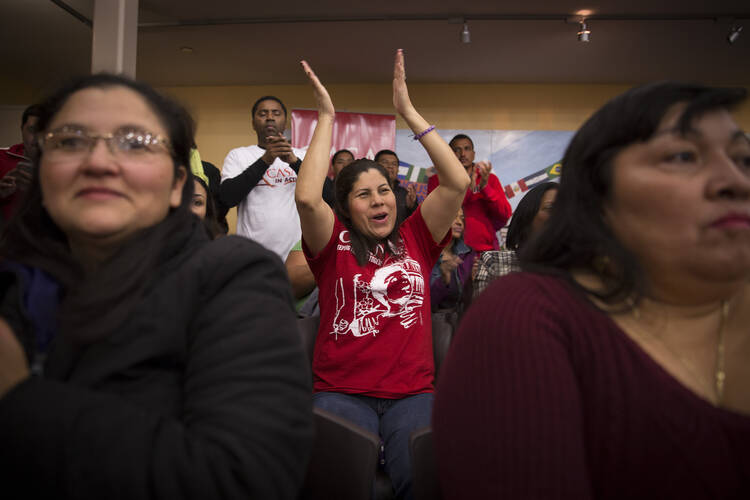At the Catholic Migration Services office in the Diocese of Brooklyn, we have long awaited a significant governmental effort to address our nation’s broken immigration system. For well over a decade, my colleagues and I experienced the bitter frustration of informing thousands of hard-working immigrants that no opportunity for legalization was available to them. In church basements, parish halls and gymnasiums, community centers and the counseling rooms of our overcrowded offices, we played the sobering role required of us amidst the swirls of misinformation and desperate inquiries by those who hoped that somehow they could find a way to acquire legal status based on their good behavior, family ties, desire to pay taxes and years of residency in this country.
So President Obama’s announcement of a new policy under which millions of undocumented individuals may receive a limited form of immigration legal relief is an exciting and joyous event for us. But from our perspective as front lines legal services providers, it is also daunting.
Together with the hundreds of other diocesan-sponsored immigration legal ministries throughout the United States, we must now focus ourselves on the large-scale planning, staff training, volunteer recruitment and countless other details necessary to assist more than four million individuals apply for protection from deportation and employment authorization. The logistical challenge is compounded by the limited resources available to support non-profit legal services.
Beyond this perennial challenge of our work—meeting too much demand with too little supply, however, many of us are also particularly concerned that the roll out of the new policy will be complicated and delayed by the obstructive tactics of its critics. This is an especially worrisome prospect as it threatens to exacerbate the confusion and misinformation that so often surrounds eligibility for immigration benefits, a condition that invites predatory schemes to exploit the desperation of undocumented immigrants.
Amidst these circumstances, the church’s role as trusted advocate and service provider for the poor and vulnerable is ever more important. We are assured that millions of immigrants will return to the same Catholic venues and information channels where they have so often before sought assistance. Here in Brooklyn and Queens, we will make every effort to utilize the various Diocesan outreach mechanisms including parishes, Catholic Charities programs, Catholic schools and Catholic media outlets to be a visible and accessible source of accurate information and non-profit legal assistance to immigrants. In this way we best fulfill our mission to “welcome the stranger” at a moment when we can finally do so with good news.
Robert McCreanor is the Director of Legal Services for Catholic Migration Services in the Diocese of Brooklyn, New York.








